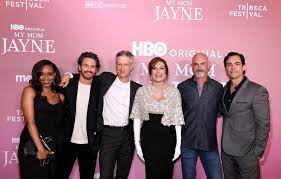
SVU Stars Then and Now: How the Cast Has Changed Over the Years
For over two decades, Law & Order: Special Victims Unit has been more than just a television show; it has become a cultural touchstone, a gritty mirror reflecting society's darkest corners, and a weekly appointment for millions. Yet, beyond the harrowing cases and the unwavering pursuit of justice, a significant part of the show's enduring appeal lies in its iconic cast. Watching SVU is like peering into a veritable time capsule, observing not just the evolution of crime and social norms, but the remarkable transformation of the actors who have brought these indelible characters to life. From fresh-faced detectives to weathered veterans, the journey of the SVU stars "then and now" is a compelling testament to the passage of time, the weight of their roles, and the profound impact of longevity on both person and persona.
At the very heart of this transformation lies Olivia Benson, portrayed with unparalleled gravitas by Mariska Hargitay. When SVU premiered in 1999, Benson was a bright, empathetic detective, her idealism tempered by the grim realities of her job. She was partnered with the fiery Elliot Stabler, their dynamic a powerful blend of professional dedication and unspoken emotional depth. Hargitay, then in her mid-thirties, imbued Benson with a raw intensity and a palpable vulnerability. Fast forward to today, and Captain Olivia Benson stands as a beacon of resilience, a seasoned leader whose eyes hold the wisdom of thousands of solved cases and countless personal heartbreaks. Hargitay's portrayal has deepened immeasurably; her face, once unlined, now carries the subtle etchings of weariness and compassion. Her voice, once firm, now commands with a quiet authority, often laced with the profound empathy that has become Benson's signature. This evolution mirrors Hargitay's own growth into an advocate and an icon, her Joyful Heart Foundation a testament to the character's influence bleeding into the actress's real life.
The most seismic shift in the SVU landscape, however, belongs to Christopher Meloni's Elliot Stabler. "Then," Stabler was the hot-headed, protective partner, prone to emotional outbursts and driven by an often-righteous anger. Meloni, muscular and intense, conveyed a simmering fury beneath a veneer of control. His departure from the show in 2011 left a gaping hole, and for a decade, fans wondered about his fate. His "now" is profoundly different. Stabler's triumphant return in Law & Order: Organized Crime, with frequent crossovers to SVU, revealed a man shaped by immense loss and trauma. Meloni, older, bearded, and carrying a visible weight of experience, portrays a Stabler who is still driven, but also more introspective, haunted, and grappling with his own demons. The fiery youth has given way to a world-weary resolve, and the lingering questions surrounding his relationship with Benson have taken on a new, mature complexity. The actor's physical changes reflect the character's internal turmoil, creating a poignant "then and now" that is arguably the most dramatic in the series.
Beyond the central duo, the supporting cast has also undergone significant evolution. Ice-T's Fin Tutuola, initially introduced as a skeptical, street-smart narcotics detective, has become the show's steadfast anchor and moral compass. "Then," Fin was cynical, guarded, and often humorous in his blunt assessments. "Now," while retaining his signature dry wit and no-nonsense attitude, he has softened around the edges, becoming a reliable confidant for Benson and a de facto paternal figure for the younger members of the squad. Ice-T's consistent, understated performance has allowed Fin to grow organically from a supporting player into an integral, beloved part of the SVU family, his face showing the quiet wisdom of two decades on the force.
Richard Belzer's Detective John Munch, a character who predated SVU and appeared in multiple series, offered a masterclass in subtle transformation. "Then," Munch was the conspiracy theorist, the wry observer, his cynicism a shield against the world's absurdities. Belzer's distinct delivery and deadpan humor made Munch an unforgettable presence. His "now" saw him gracefully retire from the squad, stepping back but never truly disappearing, a testament to the character's enduring legacy. While Belzer himself has since passed, the memory of his singular portrayal highlights how some characters evolve not through dramatic shifts, but by deepening their unique essence over time.
Even characters who had shorter, yet impactful, tenures show this "then and now" transformation. Stephanie March's ADA Alex Cabot, initially a driven and idealistic prosecutor, evolved through personal trauma and professional challenges, her face subtly mirroring her character's hardening resolve. Diane Neal's Casey Novak, succeeding Cabot, began as a rigid, by-the-book prosecutor who gradually learned to bend the rules for justice, her expressions reflecting a journey from strict adherence to compassionate pragmatism. More recently, Peter Scanavino's Carisi, who started as an eager, somewhat naive detective, has transformed into a thoughtful, increasingly confident ADA, his suit-clad presence a stark contrast to his earlier, more rugged look, symbolizing his professional ascent.
Ultimately, the "then and now" of the SVU cast is more than just a visual accounting of aging faces and changing hairstyles. It is a profound illustration of how actors inhabit roles for so long that the lines between performer and character blur. It's a reflection of the weight of the stories they've told, the traumas they've endured, and the victories they've celebrated on screen. Each wrinkle, each subtle change in demeanor, tells a story of years spent walking through the darkness, seeking light. The enduring power of Law & Order: SVU is inextricably linked to the remarkable ability of its stars to evolve, making their characters not just figures on a screen, but living, breathing testaments to resilience, justice, and the relentless march of time.
